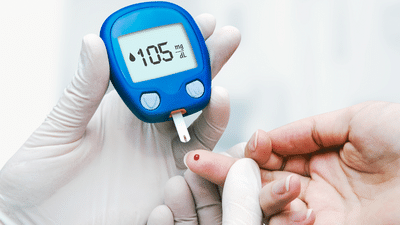From what we eat to how we manage stress, daily habits play a crucial role in the health of our cardiovascular system. Sure, genetics and age matter, but also the choices we make today will have a huge impact and will determine whether our hearts will stay strong or struggle over time.
To make us more aware of how our habits shape the course of our lives, Dr. Jeremy London, MD and board-certified cardiologist with 25 years of experience, has spent decades treating his patients with heart problems, and now he highlights four key lifestyle changes that consistently undermine the quality of life.
Video
The number one on the list is:
Smoking/ vaping
Tobacco is the most preventable cause of cardiovascular disease because it is in the hands of the person who decides to consume it. Smoking over time damages blood vessels, accelerates plaque buildup in the arteries and increases the risk of heart diseases and stroke. Meanwhile, vaping is often advertised as a "safer" alternative to smoking, but according to Dr. London, it still exposes us to harmful chemicals and nicotine, contributing to inflammation and increased risk of cardiovascular disease. While quitting smoking is a simple way to slash the risk of heart-related ailments, it should be done in a structured way that ensures lasting success. Tobacco is responsible for 20% of deaths from coronary heart disease, as quoted by the World Health Organisation (WHO). In addition to this, the WHO also quotes that tobacco control is a key element for reducing heart disease.
Dyslipidemia (Unhealthy cholesterol and lipid levels)
This might be an unknown fact to many, but imbalanced cholesterol levels, especially bad cholesterol, good cholesterol and elevated triglycerides, contribute to the formation of arterial plaque, narrowing blood vessels and restricting blood flow to the arteries. It is important to know that rising cholesterol levels in the body do not have apparent symptoms, so this makes screening tests essential for the overall proper functioning of the body. If you have unhealthy cholesterol and lipid levels, Dr. London recommends lifestyle interventions like a balanced diet and regular exercise to balance it. According to the World Heart Foundation, high cholesterol causes about 3.6 million deaths every year and is a major risk factor for heart diseases.
Diabetes

Uncontrolled blood sugar levels in the body do not just affect the pancreas; in time, they wreak havoc on the cardiovascular system. The reason being, diabetes accelerates artery damage, increases inflammation and promotes the buildup of plaque in the blood vessels, leading to atherosclerosis and heightened risk of heart disease. Dr London observes that patients with both diabetes and hypertension are particularly vulnerable to these conditions. In addition, around 11% of cardiovascular deaths were caused weere caused by high blood glucose levels, as per the WHO.
Hypertension
Hypertension is called a "silent killer" for a reason-- it rarely shows any noticeable symptoms until it has advanced to a stage where it becomes irreversible. Persistent high blood pressure strains the heart, damages the arteries and increases the risk of stroke and even heart failure. Dr London notes that monitoring blood pressure regularly and taking action by having a balanced diet, stress management, and medication when necessary can prevent long-term cardiovascular damage. The World Heart Foundation says, 'Hypertension is the number one risk factor for death globally, affecting more than 1 billion people. It accounts for about half of all heart-related disease.
A holistic approach to heart health

Dr. London emphasises that these four habits form the foundation of any type of heart-related ailment. In his experience, patients often come in for surgery or advanced treatments when the root cause lies in preventable lifestyle choices. In Dr London's words: "Preventing damage is always better than fixing it after it happens". So, track your readings, reduce sodium intake, manage your diet, and get tested regularly-- these four habits should be the mantra of your life.
To make us more aware of how our habits shape the course of our lives, Dr. Jeremy London, MD and board-certified cardiologist with 25 years of experience, has spent decades treating his patients with heart problems, and now he highlights four key lifestyle changes that consistently undermine the quality of life.
Video
The number one on the list is:
Smoking/ vaping

Tobacco is the most preventable cause of cardiovascular disease because it is in the hands of the person who decides to consume it. Smoking over time damages blood vessels, accelerates plaque buildup in the arteries and increases the risk of heart diseases and stroke. Meanwhile, vaping is often advertised as a "safer" alternative to smoking, but according to Dr. London, it still exposes us to harmful chemicals and nicotine, contributing to inflammation and increased risk of cardiovascular disease. While quitting smoking is a simple way to slash the risk of heart-related ailments, it should be done in a structured way that ensures lasting success. Tobacco is responsible for 20% of deaths from coronary heart disease, as quoted by the World Health Organisation (WHO). In addition to this, the WHO also quotes that tobacco control is a key element for reducing heart disease.
Dyslipidemia (Unhealthy cholesterol and lipid levels)
This might be an unknown fact to many, but imbalanced cholesterol levels, especially bad cholesterol, good cholesterol and elevated triglycerides, contribute to the formation of arterial plaque, narrowing blood vessels and restricting blood flow to the arteries. It is important to know that rising cholesterol levels in the body do not have apparent symptoms, so this makes screening tests essential for the overall proper functioning of the body. If you have unhealthy cholesterol and lipid levels, Dr. London recommends lifestyle interventions like a balanced diet and regular exercise to balance it. According to the World Heart Foundation, high cholesterol causes about 3.6 million deaths every year and is a major risk factor for heart diseases.
Diabetes
Uncontrolled blood sugar levels in the body do not just affect the pancreas; in time, they wreak havoc on the cardiovascular system. The reason being, diabetes accelerates artery damage, increases inflammation and promotes the buildup of plaque in the blood vessels, leading to atherosclerosis and heightened risk of heart disease. Dr London observes that patients with both diabetes and hypertension are particularly vulnerable to these conditions. In addition, around 11% of cardiovascular deaths were caused weere caused by high blood glucose levels, as per the WHO.
Hypertension
Hypertension is called a "silent killer" for a reason-- it rarely shows any noticeable symptoms until it has advanced to a stage where it becomes irreversible. Persistent high blood pressure strains the heart, damages the arteries and increases the risk of stroke and even heart failure. Dr London notes that monitoring blood pressure regularly and taking action by having a balanced diet, stress management, and medication when necessary can prevent long-term cardiovascular damage. The World Heart Foundation says, 'Hypertension is the number one risk factor for death globally, affecting more than 1 billion people. It accounts for about half of all heart-related disease.
A holistic approach to heart health
Dr. London emphasises that these four habits form the foundation of any type of heart-related ailment. In his experience, patients often come in for surgery or advanced treatments when the root cause lies in preventable lifestyle choices. In Dr London's words: "Preventing damage is always better than fixing it after it happens". So, track your readings, reduce sodium intake, manage your diet, and get tested regularly-- these four habits should be the mantra of your life.
You may also like

Prince William pays tribute to Princess Diana: Recreates mum's iconic Rio photo

Fourth issue of new monthly Liverpool FC fix on sale now

Women's Sleep Needs: Do women really need more sleep than men? What do experts say?

'Act responsibly, hold talks with sugarcane farmers': Pralhad Joshi tells K'taka govt

Get better internet immediately by pressing one button on phone when travelling






